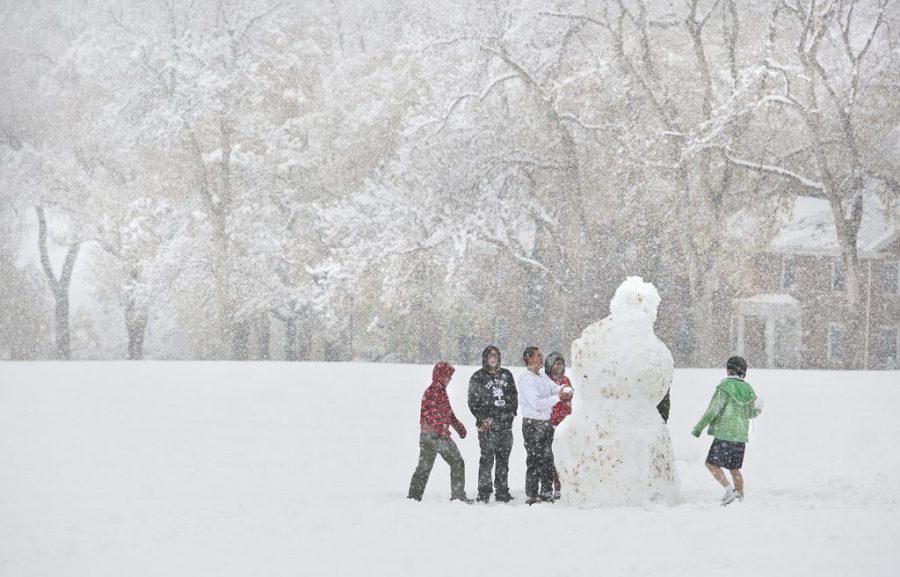For many college students, leaving campus for winter break is not an option. Some international students cannot afford the expensive airfare to their home countries, and others may not have a home or welcoming family to travel to. These students often choose to remain on campus through break and assume the costs associated with staying.
The University of Utah requires students living in residence halls to vacate their dorms by Dec. 16. Housing and Residential Education (HRE), according to a spokesperson, negotiated lowered rates at the University Guest House for students staying on campus. Students who choose to purchase winter stay over must pay $80 per night for single and double rooms. Double rooms can be shared, which allows the cost to be split between two residents. There is no time limit for how long or short a student’s stay can be, as long as it is within the break.
The U is one of nine schools in the Pac-12 that offer students the option to stay on campus over winter break. However, the cost to students varies between schools. While four schools provide housing accommodations without extra fees, the U’s stay over housing provision is the second most expensive in the Pac-12, behind Stanford University.
The University of Southern California (USC) requires students living in residence halls and suites to vacate campus and make arrangements prior to vacating. Students living in apartments are not required to vacate.
The University of Oregon asks students staying over in residence halls to pay an additional fee of anywhere from $420 to $780, depending on which hall they live in. The school’s break lasts from Dec. 8 to Jan. 6, which means students are paying approximately $13.13 to $24.38 per night. Students may be moved into different rooms for the break to increase campus safety, according to the school’s housing website.
The University of California, Los Angeles (UCLA), allows students to purchase a stay over package for the entirety of the break for $895. Accommodations include two meals for all but seven days, which are listed on the school’s housing website. Lasting from Dec. 15 to Jan. 6, students pay $44.75 per night.
The University of Arizona requires students living in residence halls to pay an additional fee of $300 to $400, varying by which building they live in, according to its housing website. Students must have noted they need winter break housing on their initial housing application. The period for stay over is Dec. 15 through Jan. 7, so students are charged between $13.64 and $18.18 per night.
Arizona State University does not charge an extra fee for any student living on campus who decides to stay over winter break.
The University of California, Berkeley, asks all students living in residence halls to vacate the campus over break. Only students in apartment buildings can remain on campus and they are not charged extra fees.
The University of Colorado Boulder requires all students in residence halls to vacate campus during winter break.
Oregon State University does not charge extra fees for students living in residence halls who decide to stay over break, as the cost of living on campus during this time is included in rates. Students must sign up for winter break housing.
Stanford University mandates that all undergraduate students living in residence halls must vacate. The university recommends staying with friends, looking for interim housing or staying at the Stanford Guest House, which costs $155 per night.
Washington State University does not bill students living on campus an extra fee for staying over winter break, and all residence halls remain open.
The University of Washington asks most students living in residence halls to vacate their dorms. Students who requested winter break housing when applying for a spot in the residence halls will not pay extra fees to stay in housing, as the cost is already included.
It is standard practice for universities and colleges across the country to close residence halls for winter breaks, as many students leave campus for the duration of the break, according to HRE spokesperson Erica Andersen.
“In addition to lower demand for break housing, HRE also closes on-campus residence halls to support lower housing costs, winter staffing and security needs and facilities inspection cycles,” Andersen said.
j.mumford@dailyutahchronicle.com
@jacqmumford



